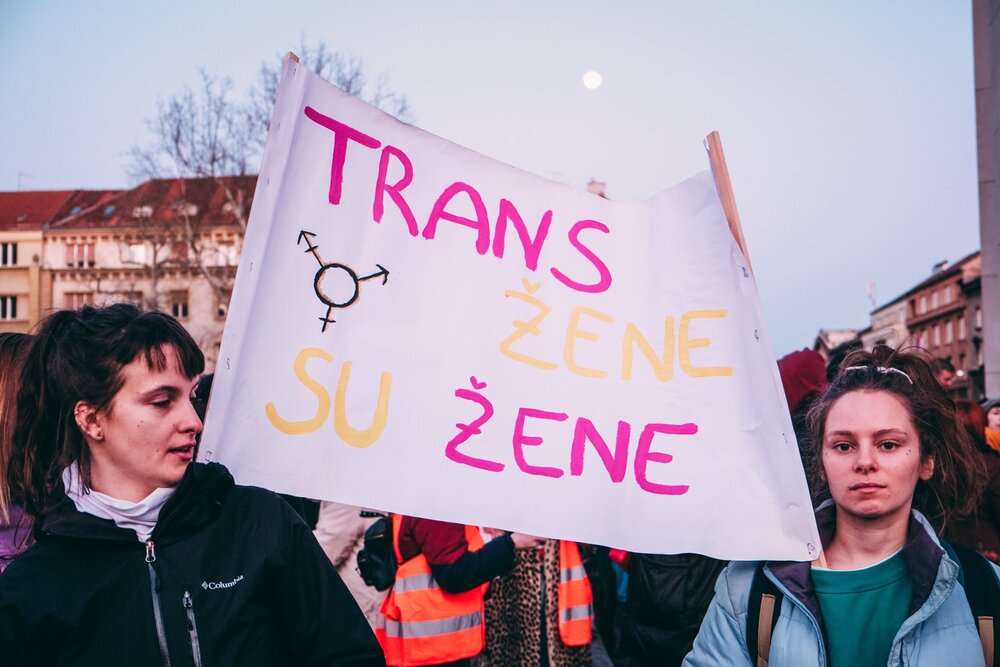In recent weeks, as long as this wave of the Balkan version of the #MeToo movement lasts, it seems as if the region has finally found a hearing on the testimonies of sexually abused women. Does this give us hope that these spaces, whose soil has been soaked with misogyny for centuries, are willing to trust women and abandon the usual pattern of blaming the victim for the perpetrator’s act?
The testimony of Serbian actress Milena Radulović about the rape she experienced as a high school student in acting classes triggered an avalanche of new confessions about sexual abuse. The news, like a fire, spread across the border, managing to grow the courage of girls across the Balkans, some of whom had buried their own experiences long ago, waiting for better times to surface and be shared with the public. In just a few days, Bosnia and Herzegovina, Croatia and Montenegro were flooded with confessions from girls who shared Milena Radulović’s experience.
There is a certain dosage of enviable courage of the girls who decided to speak in public. What gives hope is the prompt response of institutions and academia to protect fellow women students and sanction the offenders. The Academy of Dramatic Arts and the Academy of Fine Arts were among the first to publicly invite female students to report any form of sexual harassment. Since the beginning of the #I did not seek campaign until today, the ADU has received 27 reports against their employees, and some have already been suspended and removed from the curriculum.
After ADU, the Academy of Fine Arts fell, where two former and two current students described the established pattern of inappropriate behavior of individual professors, which included sexist comments, touching, inappropriate invitations to studios, followed by calls for sex. Similar methods of belittling, criticizing and finally intimidating were described by at least nine female students of the Faculty of Veterinary Medicine, who experienced it from the same professor, and who was removed from his previous position after echoing in the media. The Faculty of Philosophy in Zagreb also earned five applications, and the Facebook group Nisam tražila also mentions the Faculty of Philosophy in Zadar and the Faculty of Law in Split. (More than 60 reports of sexual harassment and abuse at colleges have been received so far, op.cit.)
Dubrovnik, on the other hand, has been shaken these days by an affair in which the police chief is suspected of sending inappropriate messages, inappropriate invitations to meetings and discriminatory treatment of women. The fate of the accused police officer is still uncertain, but it is certain that he still enjoys the favor of the local community that organized the protest in support of the accused. This way, the people of Dubrovnik have been known for their continuous practice of protecting men whose testimony is automatically taken as more credible than the testimony of the victims.
The latter, on the other hand, is the subject to constant questioning, relativization, or even denial. We have the opportunity to see a glaring example of one rejection of a woman’s testimony on HRT (Croatia’s national TV channel), while the police refuses to investigate a report of sexual abuse filed by their journalist against the owner of the business, telling her to try to solve the problem on her own.
The peak of misunderstanding for the burning issue that shook the Croatian public was shown by the rector of the University of Zagreb, Damir Boras, when, deaf to the report for sexual harassment against one of the professors at FFZG, he decided to award the honorary title of professor emeritus instead of sanctioning.
Applications continue to arrive, Google forms are being created to allow anonymous testimonies, working groups, committees and commissions are being formed to prosecute those accused of sexual harassment, and trainings are being organized for students and professors. Like dominoes, one by one the formerly untouchable representatives of power fall, which finally begins to take concrete steps towards combating the ubiquitous abuse of positions. Thanks to the disproportion of power between the abuser and the victim, many of them have been, at least so far, forced to accept the harassing and sexist behavior of the authorities.
Despite the significant public support for victims, comments on social media, statements by President Milanovic and the lack of reaction from some representatives of the institutions reveal the other side of the inert system. Distorting the line between harmless flirting and sexual harassment, mitigating the suffering of abused women, as well as blaming victims for the behavior they experienced are still part of the nation’s collective stance on the issue of sexual harassment. Public space continues to be tainted by statements that expect women to take responsibility for provocative clothing, ambiguous signals to members of the opposite sex, or ambitions that prompted them to reach over bed the flattering position their abuser has most often enjoyed for years.
However, it is certain that the movement Nisam trazila gives hope that women in this area will finally feel the taste of justice, and that in the future, the movement of abused women will not need to be given the name Nisam trazila because it will be clear that blaming the victims for the injustices done to them is out of the question. A critical mass seems to have been established, a significant percentage of the population that unequivocally supported the victims, showing empathy for their suffering. Among them are the deans of the faculties, who immediately enabled the victims to report anonymously, and a professor at the Faculty of Veterinary Medicine, who gave priority to the testimony of female students over a high-ranking colleague and submitted their reports.
We must not forget the immense support that women have found among themselves. By sharing testimonies in a Facebook group, they found understanding and acceptance among those whose life stories are marked in a similar way, thus finding an empathetic environment in which their wounds can finally begin to heal.
Valentina Marinovich, Vox Feminae


